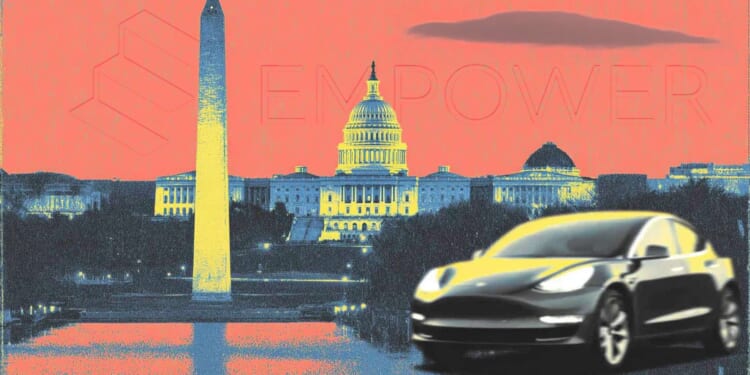Joshua Sear, CEO of the popular rideshare alternative Empower, won’t be incarcerated for his company’s continued operations in Washington, D.C., after Superior Court Judge Shana Frost Matini agreed on Thursday to stay her contempt order pending a decision from the D.C. Court of Appeals. Empower will likely be able to operate within the nation’s capital until at least January 9, when the Superior Court reconvenes for a status hearing.
After a years-long legal battle, D.C. Attorney General Brian Schwalb requested that Sear be incarcerated until Empower complies with a Superior Court order and registers with the city’s Department of For-Hire Vehicles (DFHV) as a private vehicle-for-hire company. Earlier this month, the court declined to take Sear into custody on the condition that Empower stop operating as a private vehicle-for-hire company within Washington, D.C., by October 10.
Last week, Empower submitted an update to the Superior Court explaining that the company “is changing to a no-contract business model in the District.” Under this new model, Empower’s software-as-a-service (SaaS) agreement does not apply to drivers when operating within the city.
Empower contends that this change brings the company into compliance by placing it outside the DFHV’s authority entirely; a February 2024 ruling in the D.C. Court of Appeals found the company to be “subject to DFHV’s regulation” because of “the contract between Empower and its subscribers.” Empower’s argument was unintentionally supported by D.C. Assistant Attorney General Dia Rasinariu, who said during oral argument in October 2023 that “the company would fall out of the definition of a private vehicle-for-hire company” if it didn’t have a contract with drivers. Despite this change, Matini held Thursday that Empower remained in contempt.
On Tuesday, the D.C. Superior Court convened to hear arguments from Empower and the D.C. government about whether the company had come into compliance by updating its SaaS agreement. Assistant Attorney General Anthony Celo characterized Empower’s no-contract model as a distinction without a difference. Celo argued that an “implied contract” still exists between Empower and drivers because the company still subjects D.C. drivers to background checks, requires them to submit their licenses, and facilitates payments (via Stripe) to them from riders. “If it looks like a duck and it quacks like a duck, it’s probably a duck,” Celo said.
These two ducks are not equally profitable: Sear testified Tuesday that the no-contract model will cost Empower an estimated $1.5 million to $3.5 million annually. Sear rejected the existence of an implied contract by likening Empower’s discretion over whom to allow on its platform to a bar excluding underage patrons from the premises. After more than an hour and a half of arguments and testimony, Matini decided to take the matter under advisement.
On Thursday, Matini sided with the district, finding that Empower’s amendment to its SaaS agreement is merely “a different term of the same contract.” Accordingly, Martini ruled that Empower remains in contempt of court because “a contract, whether expressed or implied, remains present” between Empower and drivers operating in the nation’s capital. Matini stayed fines against Empower and Sears’ incarceration pending the Court of Appeals’ decision.
Since launching in 2020, Empower has disrupted the D.C. rideshare market by enabling drivers to provide cheaper rides and keep more revenue than they’re able to with traditional rideshare companies. Despite offering a superior service to the public, Empower has faced bureaucratic roadblocks at every turn from a city government that seems intent on entrenching incumbent firms and suffocating competition.
Now, Empower’s fate, and that of thousands of drivers and riders, is in the hands of the D.C. Court of Appeals.

















